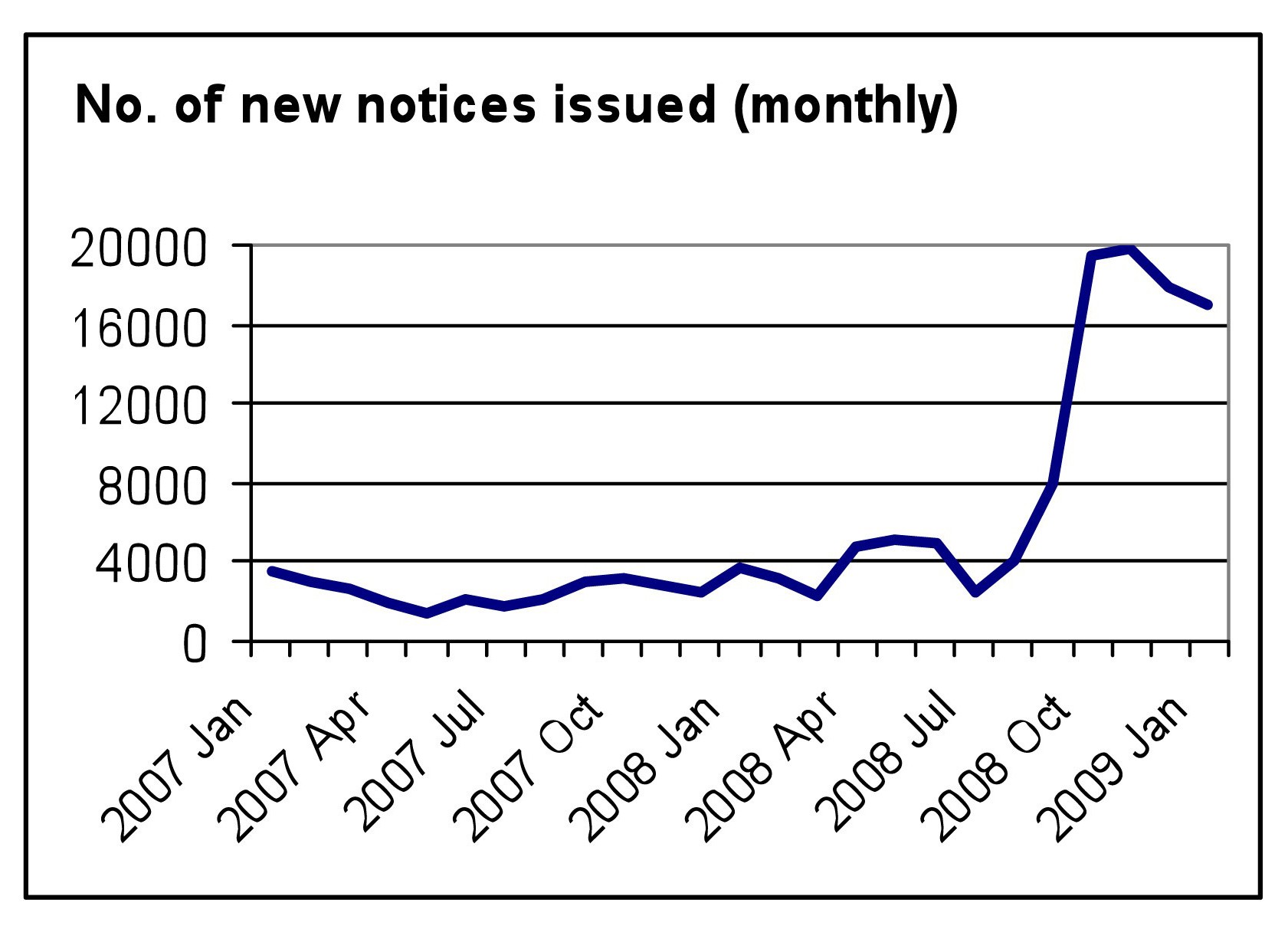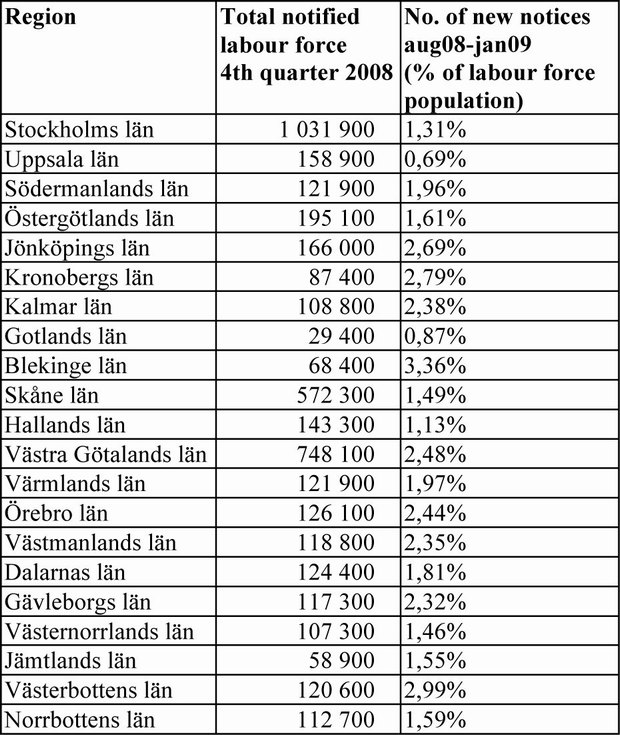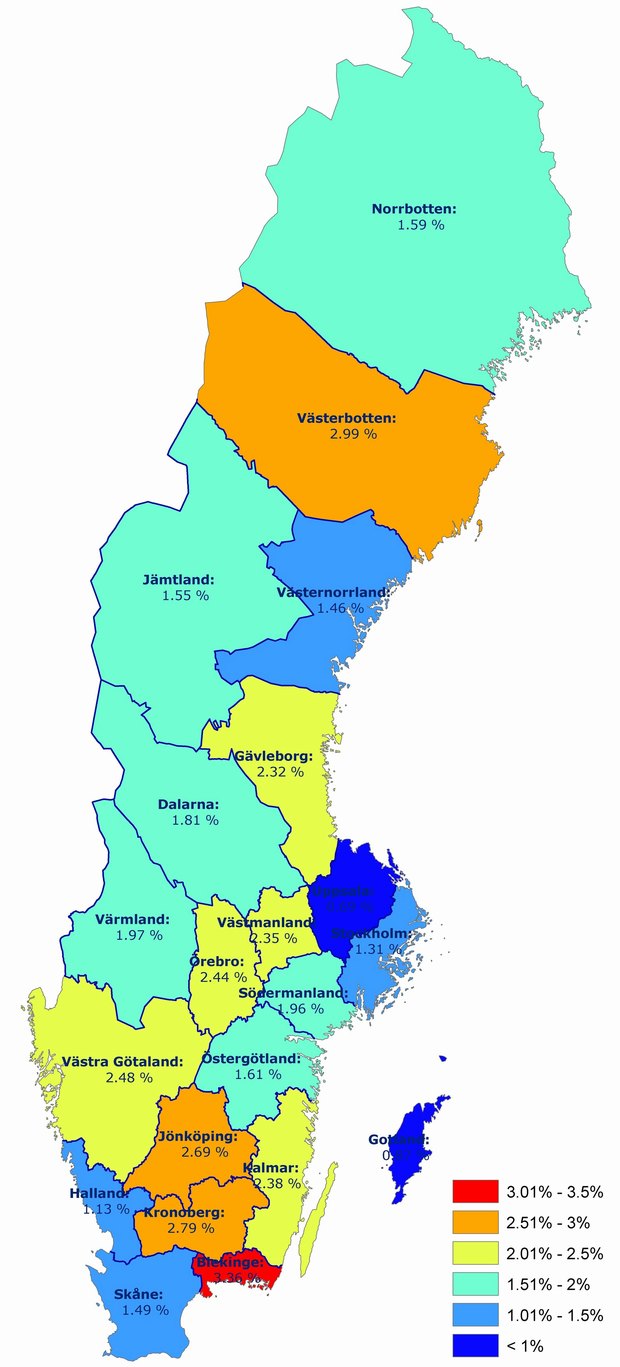In the last two years the total number of employees in Sweden included in such early notice statistics amounted to a monthly average of 5000. From September 2008, the number of new notices issued has increased significantly, and in the six months since August 2008 more than 100,000 employees have been notified of possible layoffs.
The total number of notices being issued is actually larger, since employers who plan to lay off less than 5 employees are not actually required to report these plans to the Swedish Public Employment Service (PES).
Recent estimates indicate moreover that more than 2/3 of all prior notices actually in redundancies.
In early October 2008, the Swedish government appointed regional coordinators (varselsamordnare) in the six regions (län) most affected by an increase in the number of advance notices. The regional coordination task has been given to the state representative – the county governors. In most regions they operate in tandem with the politically elected chair of the regional development council.
At the central level, an eight-member task force of deputy ministers from five of the government ministries has also been established. The government task force is responsible for maintaining the dialogue between the central government and the regional level on these issues, and is tasked with coordinating inter-ministerial political initiatives to combat economic decline following from the credit crunch.
The Swedish Association of Local Authorities and Regions (SALAR) has welcomed the government initiative, particularly as it seems to draw benefits from the municipal collaboration structures that are already in place.
Thus far, the regional coordinators have reported to the governmental task force twice, in December 2008 and in early February 2009. The coordinators proposed a range of new actions and political initiatives, including proposals improving the opportunities for vocational training and the development of new skills for employees facing unemployment. Many of the more urgent proposals, particularly those that relate to renewed university-industry relations, remain however an issue of some political debate.
The confidentiality rules binding the Public Employment Service prevents the regional coordinators from gaining access to information such as which particular companies are notifying the PES of lay offs, and thus they have to rely on compiling information from media announcements made elsewhere. Regional coordination is thus to some extent hampered by a lack of systematic access to this information.



By Jon M. Steineke, previous Research Fellow, Nordregio